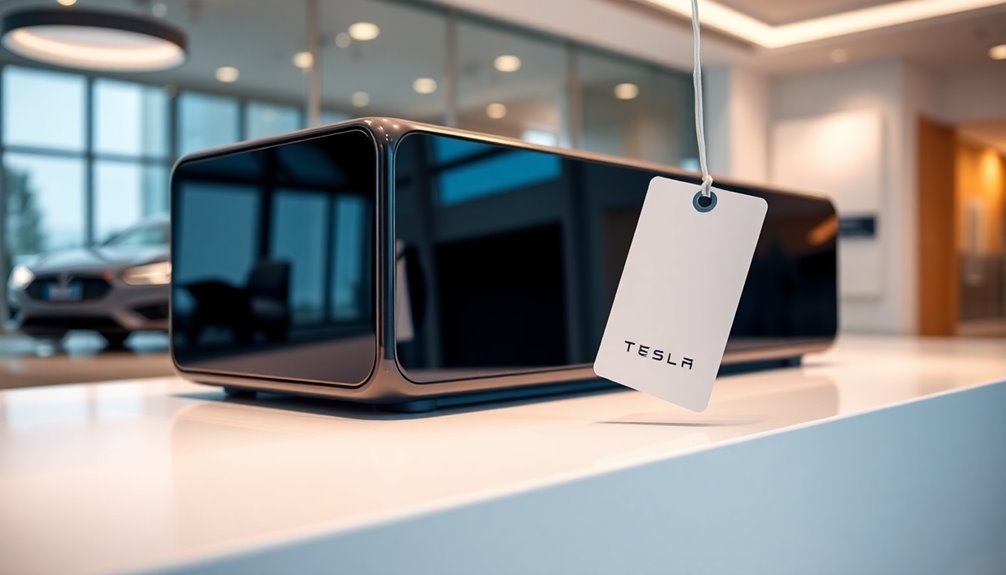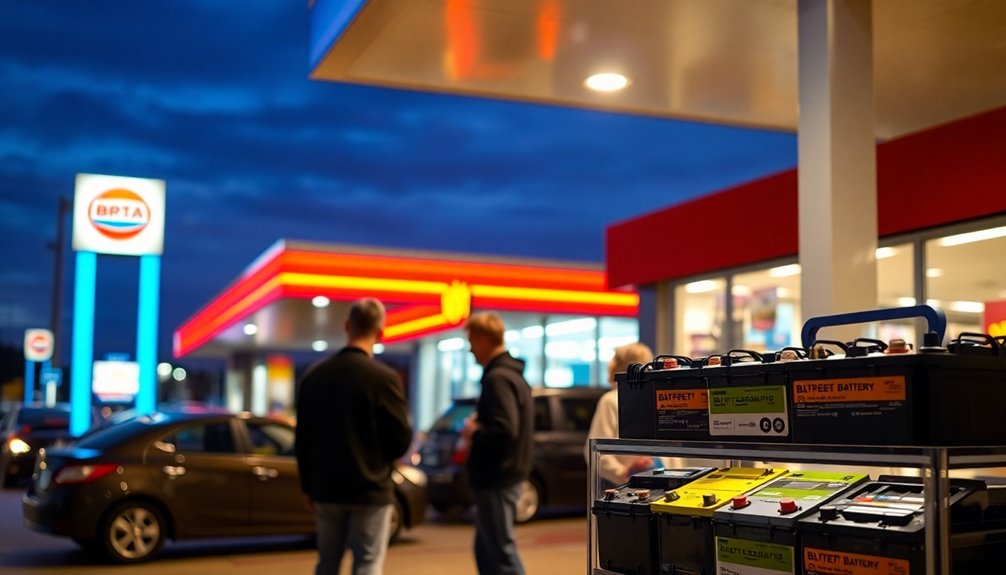In the lithium gold rush, you’ll see tech giants and mining companies thriving as demand for batteries skyrockets. But, while some benefit financially, others—especially local communities and ecosystems—face environmental damage and resource depletion. The future hinges on balancing innovation with sustainability, as new extraction methods aim to reduce ecological impacts. To understand how this race shapes industries and ecosystems alike, keep exploring the next steps in this dynamic and critical energy shift.
Key Takeaways
- The lithium boom benefits producers and tech companies but often harms local communities and ecosystems.
- Environmental concerns include habitat destruction, water depletion, and pollution from mining operations.
- Innovations in extraction aim to reduce ecological impacts, though widespread adoption remains limited.
- Market growth drives investment and expansion in mining, with geopolitical and ethical implications.
- Sustainable practices and responsible sourcing are crucial for balancing economic gains with environmental and social health.

Have you noticed the surge in demand for lithium lately? It’s driven by the rapid growth of electric vehicles, portable electronics, and renewable energy storage. As a key ingredient in batteries, lithium has become the backbone of modern battery technology. But this boom isn’t just about innovation; it’s also sparking concern over the environmental impact of extracting and processing lithium. You might wonder how this rush affects the planet and whether the benefits outweigh the costs.
The surge in lithium demand fuels innovation but raises environmental concerns over extraction and processing impacts.
Battery technology is evolving at a breakneck pace, with lithium-ion batteries leading the charge. They’re lighter, more efficient, and capable of holding more energy than previous alternatives. That makes them ideal for powering everything from smartphones to electric cars. As demand skyrockets, companies are investing heavily in refining battery chemistry to improve performance and safety. However, this technological progress comes with challenges. Mining operations often require significant energy inputs and can lead to habitat destruction, water depletion, and pollution. The environmental impact is a hot-button issue, especially in regions where lithium extraction is concentrated, like South America’s Lithium Triangle. Here, water-intensive processes threaten local water supplies, affecting communities and ecosystems.
You might also notice that as the lithium market expands, so does scrutiny of the supply chain. Companies are under pressure to adopt more sustainable practices, but the *transition* isn’t seamless. Some producers are exploring greener extraction methods, like direct lithium extraction techniques that reduce water use and waste. Still, these innovations are not yet widespread enough to fully mitigate environmental concerns. Meanwhile, governments and investors are weighing the long-term benefits of a cleaner energy future against the immediate ecological costs of lithium mining. Embracing creative practice and innovative problem-solving can help develop sustainable solutions for resource extraction and technological advancement.
On the economic front, the winners are clear: lithium producers, tech giants, and automakers rushing to meet the demand for electric vehicles. They’re capitalizing on the lithium frenzy, often securing lucrative contracts and expanding mining operations. But the losers include local communities and ecosystems bearing the brunt of extraction. Indigenous lands and fragile environments face disruption and degradation. As the lithium gold rush continues, it’s *crucial* to balance technological advancements with responsible sourcing and environmental stewardship. The future of lithium isn’t just about powering our devices and vehicles; it’s about ensuring that this energy *shift* doesn’t come at too high a cost to our planet. You have a stake in this story, whether as a consumer, investor, or advocate for sustainable innovation.
Frequently Asked Questions
How Sustainable Is Lithium Extraction Long-Term?
You might wonder if lithium extraction is sustainable long-term. While current methods face challenges like environmental impact, technological advancements are improving economic feasibility and reducing ecological harm. These innovations, such as more efficient mining techniques and recycling, help guarantee lithium’s long-term availability. However, continuous efforts are necessary to balance demand with environmental responsibility, making sustainability an ongoing priority for the industry.
What Environmental Impacts Are Associated With Lithium Mining?
So, you think mining lithium is all green energy and bright futures? Well, think again. You’re likely to face environmental contamination from toxic chemicals and water depletion that leaves local communities high and dry. Ironically, the very process fueling your electric dreams can harm ecosystems and drain water supplies. So, while you chase sustainability, remember that lithium mining can leave a pretty dirty footprint behind.
Are There Ethical Concerns Regarding Lithium Sourcing?
You should consider that ethical concerns about lithium sourcing include issues like child labor and water depletion. Many mining operations have been linked to child labor, raising serious moral questions. Additionally, lithium extraction often requires significant water use, leading to water depletion in local communities and ecosystems. These problems highlight the need for responsible sourcing practices to guarantee that the benefits of lithium don’t come at an unacceptable ethical or environmental cost.
How Does Lithium Demand Affect Global Geopolitics?
You’ll find that lithium demand, which has surged over 300% in the past decade, reshapes global geopolitics considerably. Countries form new alliances and strengthen existing ones to secure lithium supplies, often leading to resource nationalism. This demand shifts power dynamics, prompting nations to prioritize strategic partnerships and sometimes sparking conflicts. As a result, lithium’s importance influences geopolitics deeply, making resource control a key factor in international relations today.
What Innovations Could Revolutionize Lithium Recycling?
You can revolutionize lithium recycling by adopting innovative technologies that improve efficiency and sustainability. Battery recycling methods like hydrometallurgy and pyrometallurgy are advancing, but new innovations could further reduce costs and environmental impact. You might see breakthroughs in automated sorting, closed-loop processes, or nanotechnology, making lithium recovery faster and more complete. Embracing these innovations guarantees you maximize resource reuse, lessen reliance on mining, and support a greener, more sustainable energy future.
Conclusion
As you watch the lithium gold rush unfold, remember that winners thrive on innovation, losers falter without foresight, and the future belongs to those who adapt quickly. You must embrace change, seize opportunities, and stay informed. Because in this race for lithium, success depends on agility, resilience, and vision. Stay alert, stay proactive, and stay ahead—because the next chapter is written by those who dare to lead.










